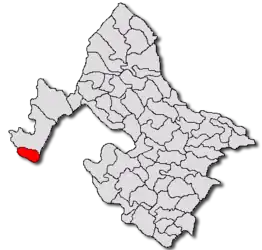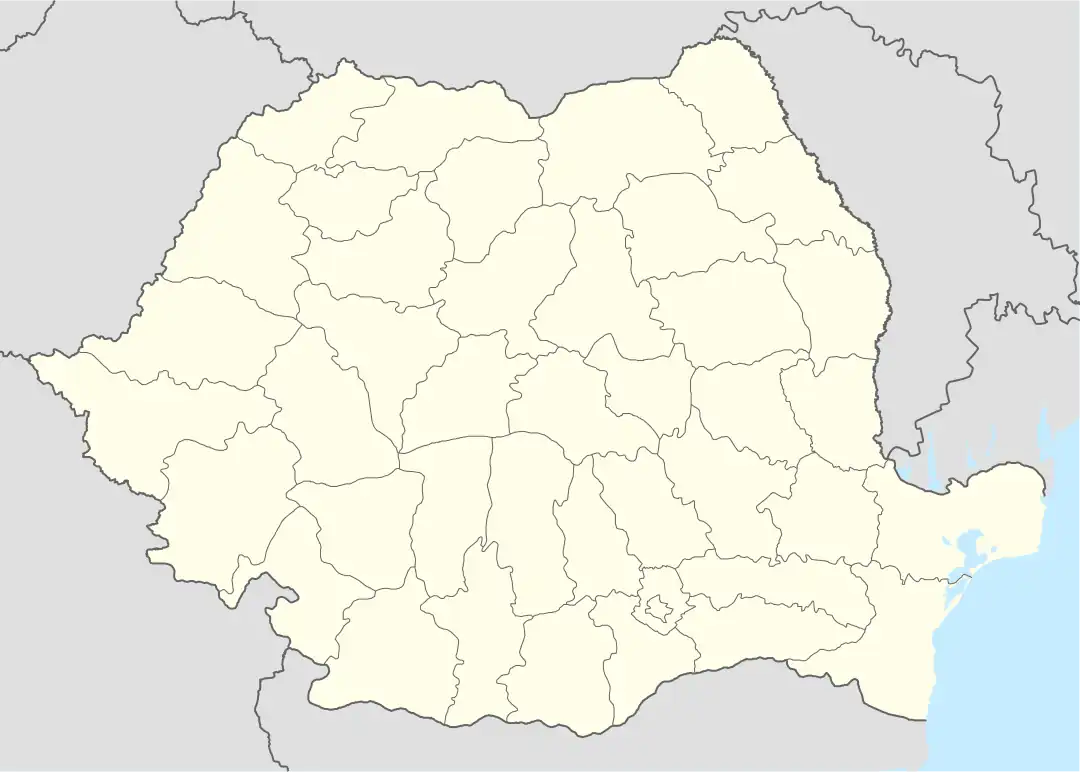Svinița
| |
|---|---|
 Ruins at Tri Kule, by the Danube | |
 Location in Mehedinți County | |
 Svinița Location in Romania | |
| Coordinates: 44°30′N 22°06′E / 44.500°N 22.100°E | |
| Country | Romania |
| County | Mehedinți |
| Government | |
| • Mayor (2020–2024) | Nicolaie Curici[1] (PSD) |
| Area | 91.45 km2 (35.31 sq mi) |
| Elevation | 135 m (443 ft) |
| Population (2021-12-01)[2] | 741 |
| • Density | 8.1/km2 (21/sq mi) |
| Time zone | EET/EEST (UTC+2/+3) |
| Postal code | 227440 |
| Vehicle reg. | MH |
Svinița (Romanian: Svinița, Serbian: Свињица or Svinjica, Hungarian: Szinice) is a commune in Mehedinți County, Romania, located on the Danube (in the area of the Banat known as Clisura Dunării – Banatska Klisura in Serbian). It is composed of a single village, Svinița. In 2011, its population numbered 928 people and was mostly composed of Serbs. It is one of four localities in the county located in the Banat.
Name
The name Svinjica means "the pig place" or "little pig" in Serbian.
History
In the autumn of 1848, the locality was the site of a daring escape of Wallachian revolutionaries kept in Ottoman custody. Maria Rosetti and Constantin Daniel Rosenthal called on the local mayor to demand that Ottoman guards hand in their weapons on what was at the time Austrian soil, and all persons arrested were consequently free to go.
Demographics

Ethnic groups (2011 census):[3]
Languages
The commune is officially bilingual, with both Romanian and Serbian being used as working languages on public signage and in administration, education and justice.
Religion
As of 2011, most of the inhabitants of the commune (90.3%) were Serbian Orthodox by religion, while most of the rest are Romanian Orthodox (6.5%).[4]
Notes
- ↑ "Results of the 2020 local elections". Central Electoral Bureau. Retrieved 6 June 2021.
- ↑ "Populaţia rezidentă după grupa de vârstă, pe județe și municipii, orașe, comune, la 1 decembrie 2021" (XLS). National Institute of Statistics.
- ↑ Tab8. Populaţia stabilă după etnie – judeţe, municipii, oraşe, comune, 2011 census results, Institutul Național de Statistică, accessed 2 March 2020.
- ↑ Tab13. Populaţia stabilă după religie – judeţe, municipii, oraşe, comune, 2011 census results, Institutul Național de Statistică, accessed 2 March 2020.
